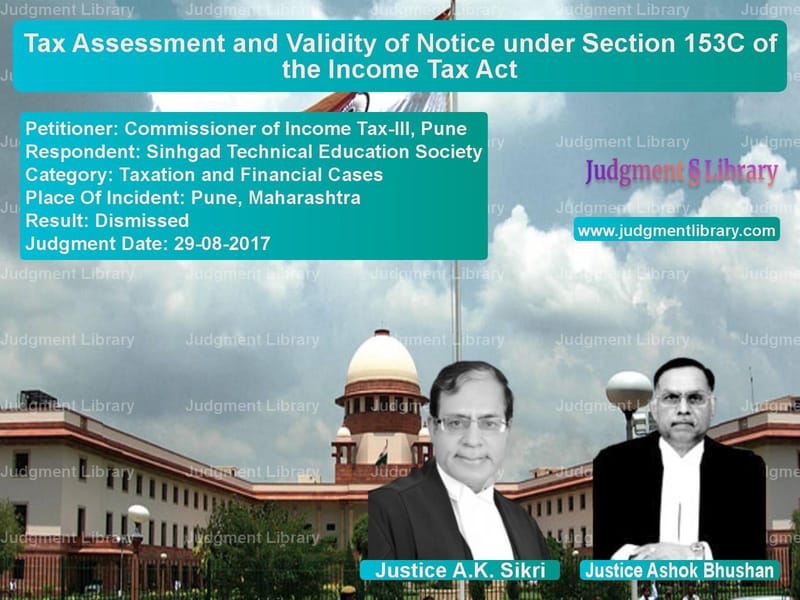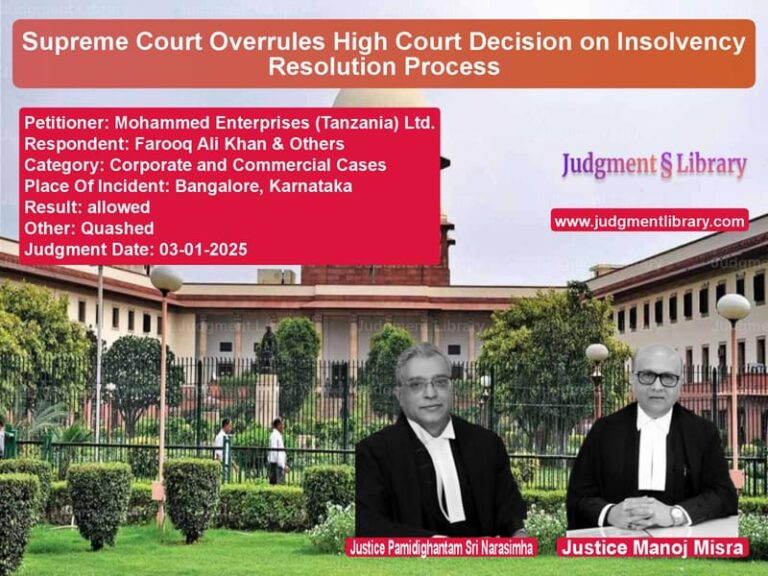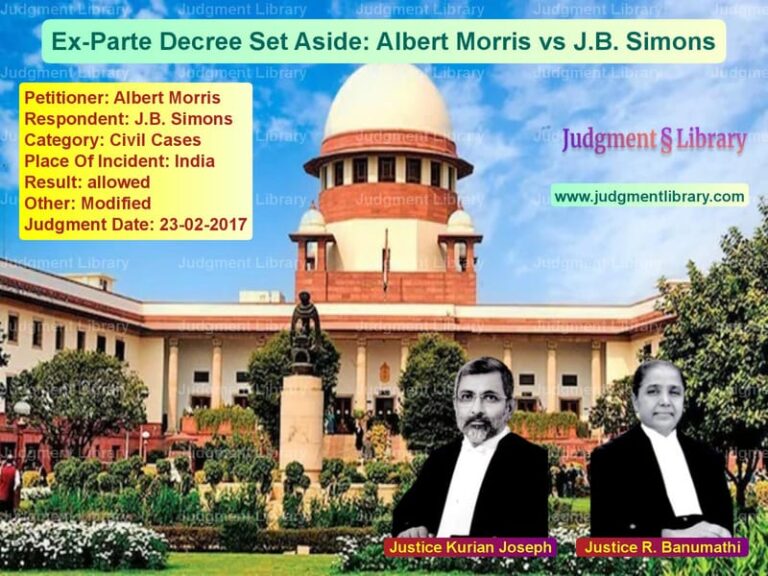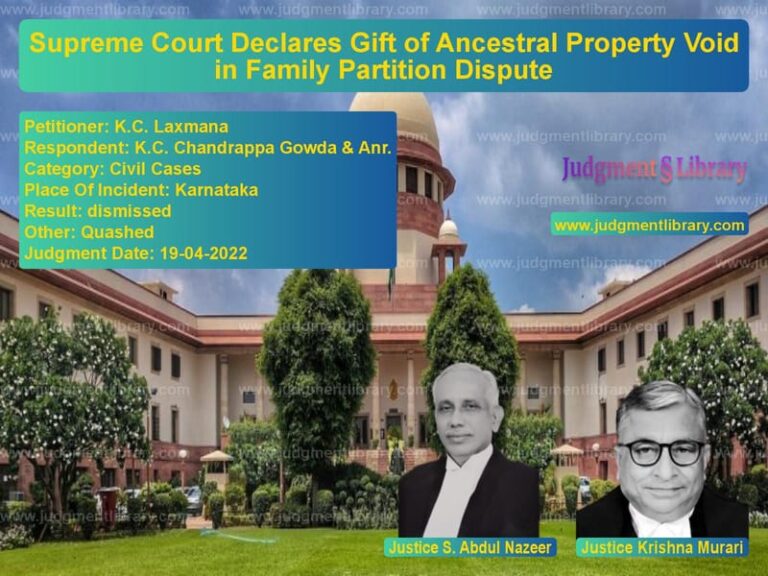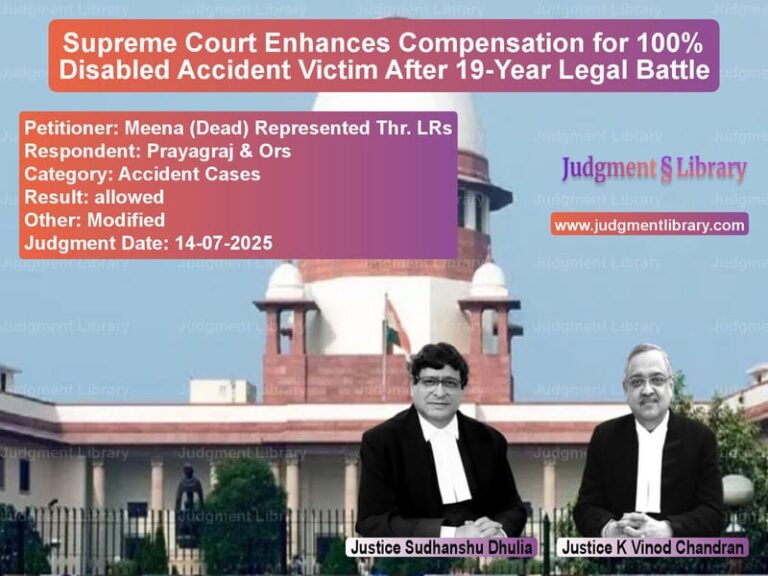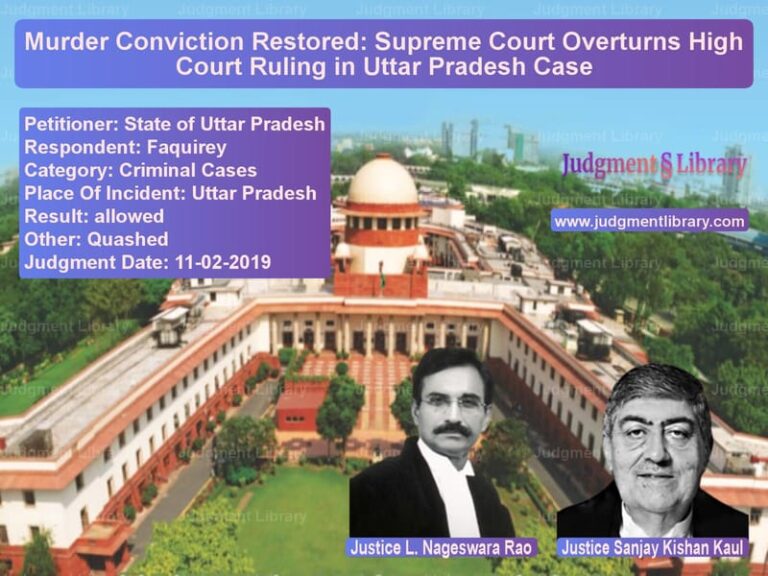Tax Assessment and Validity of Notice under Section 153C of the Income Tax Act
This case involves a legal dispute between the Commissioner of Income Tax-III, Pune (the appellant) and the Sinhgad Technical Education Society (the respondent). The appeal concerns the validity of notices issued under Section 153C of the Income Tax Act, 1961, for assessment years 2000-01 to 2003-04. The issue raised pertains to the correctness of the assessment conducted after a search and seizure operation, and the specific question of whether the notice issued for certain assessment years was time-barred or legally sustainable under the provisions of the Act.
Background: The respondent, a registered educational society, was the subject of a search operation conducted under Section 132 of the Income Tax Act on July 20, 2005, involving Mr. M.N. Navale, one of the trustees of the society. During the search, documents were seized that allegedly contained evidence of capitation fees received by the society in violation of income tax laws. These documents were used by the revenue authorities to issue notices under Section 153C of the Income Tax Act, which allows for assessment of income in cases where documents seized during a search relate to the taxpayer.
The notices were issued for the assessment years 2000-01 to 2003-04. The main issue in dispute was the validity of these notices, especially considering the claim that the notice for the years 2000-01 and 2001-02 was time-barred. Additionally, the respondent contested the adequacy of the seized documents in substantiating the charges of tax evasion, particularly with regard to the alleged collection of capitation fees, and the findings about the genuineness of the society’s activities.
Petitioner’s Argument: The appellant, represented by the learned Solicitor General, argued that the search operation and the subsequent seizure of documents were valid and that the notices issued under Section 153C of the Act were in accordance with the law. The Solicitor General emphasized that the satisfaction note, which is a necessary pre-condition for issuing notices under Section 153C, had been duly recorded, establishing that the seized documents pertained to the respondent. The appellant also argued that the respondent’s activities were not in compliance with the trust deed and that the society had been involved in collecting capitation fees, which were not disclosed in its returns. The Solicitor General cited earlier judgments, including those of the Delhi and Gujarat High Courts, to support the validity of the notices issued and the subsequent assessments.
Respondent’s Argument: The respondent, represented by their counsel, countered by arguing that the notices for the assessment years 2000-01 and 2001-02 were time-barred, as the satisfaction note was not properly recorded. The respondent further argued that the documents seized during the search did not establish a connection with the alleged tax evasion and that no incriminating material had been found for the assessment years in question. The respondent also contended that the cancellation of the society’s registration under Section 12AA of the Income Tax Act was done without proper basis, and that the finding of capitation fees and profiteering was not substantiated by the evidence. They contended that the assessments and notices issued for the years 2000-01 to 2003-04 were legally unsustainable, especially given the absence of direct evidence of income generation through illegal means.
Court’s Ruling: The Supreme Court ruled that the notices under Section 153C for the assessment years 2000-01 and 2001-02 were time-barred, as the satisfaction note had not been properly recorded and the seizure of documents was not valid for these years. The Court also observed that the ITAT and the High Court were correct in quashing the notices for these years, as the documents seized did not provide adequate evidence to support the claims of tax evasion. The Court emphasized that the tax authorities must adhere to procedural requirements when issuing notices under Section 153C, and any failure to do so renders the notices invalid. The Court further clarified that the appellant’s claim that the society had been involved in profiteering and collecting capitation fees had not been sufficiently established by the evidence presented.
Key Points from the Judgment:
- The Court ruled that the notices for the assessment years 2000-01 and 2001-02 were time-barred due to improper recording of the satisfaction note.
- The judgment upheld the decision of the ITAT and the High Court in quashing the notices for these years, finding that the seized documents did not provide adequate evidence of tax evasion.
- The Court reaffirmed the importance of proper procedure in issuing notices under Section 153C, particularly regarding the recording of the satisfaction note and the validity of seized documents.
- The appellant’s claims regarding the society’s activities, including the collection of capitation fees, were not substantiated by sufficient evidence, and the Court emphasized the need for strong proof in such cases.
- The appeal was dismissed, and the assessment orders for the years 2000-01 to 2003-04 were quashed.
Conclusion: This case highlights the critical importance of adhering to procedural requirements in tax assessments, particularly when it comes to issuing notices under Section 153C of the Income Tax Act. The ruling reinforces the principle that the burden of proof rests with the revenue authorities to substantiate their claims, and that procedural irregularities cannot be overlooked. The Court’s decision in favor of the respondent emphasizes the protection of taxpayer rights and ensures that tax authorities act within the bounds of the law when making assessments.
Don’t miss out on the full details! Download the complete judgment in PDF format below and gain valuable insights instantly!
Download Judgment: Commissioner of Inco vs Sinhgad Technical Ed Supreme Court of India Judgment Dated 29-08-2017.pdf
Direct Downlaod Judgment: Direct downlaod this Judgment
See all petitions in Income Tax Disputes
See all petitions in Tax Evasion Cases
See all petitions in Banking Regulations
See all petitions in Judgment by A.K. Sikri
See all petitions in Judgment by Ashok Bhushan
See all petitions in dismissed
See all petitions in supreme court of India judgments August 2017
See all petitions in 2017 judgments
See all posts in Taxation and Financial Cases Category
See all allowed petitions in Taxation and Financial Cases Category
See all Dismissed petitions in Taxation and Financial Cases Category
See all partially allowed petitions in Taxation and Financial Cases Category

